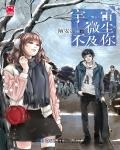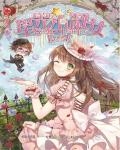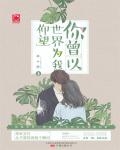Chapter 11: Jinhua Yongjia School of Utilitarianism
As we all know, Cheng-Zhu Neo-Confucianism was not a popular school of thought when it first appeared.
At that time, the Northern and Southern Song Dynasties were in a precarious situation in a corner, but the emperor and the literati were living a life of luxury and only cared about paying tribute.
The Cheng-Zhu Neo-Confucianism’s “preserve the principles of heaven and eliminate human desires” was actually originally a requirement for scholars and officials.
As for the use of widows, it's really just an analogy, that is, many poems use "chaste women" to compare "chaste men." (Of course, this analogy itself demonstrates the oppression of women in feudal society.)
In fact, while Cheng Er praised chastity, he actually encouraged his niece to remarry. Moreover, Cheng Er's family strictly prohibited their women from binding their feet, denouncing foot binding as a vulgarity.
Zhu Xi had many pedantic remarks, but his support for foot binding was purely a scapegoat.
The only historical record related to Zhu Xi and foot binding is the article "The Forest of Canes for Women in Zhangzhou" in the "Customs of China" compiled by the Republic of China scholar Hu Puan. It says that "when Zhu Wengong was in charge of Zhangzhou, he enacted a law ordering that feet be bound to a very small degree to make it difficult for people to walk."
However, according to reliable historical data, very few women in Zhangzhou bound their feet during the Kangxi period, and foot binding only became popular in the late Qing Dynasty. Therefore, this record is just a copycat of a celebrity.
Zhu Xi's second-generation disciple Che Ruoshui once criticized foot binding, saying, "Children under the age of four or five, innocent and yet subjected to endless suffering." The attitude of Zhu Xi's disciples reveals Zhu Xi's own attitude towards foot binding.
This is perfectly normal. Zhu Xi, like the two Cheng brothers, was a Confucian scholar who firmly believed that "our bodies and hair are inherited from our parents." Naturally, he would have been disgusted by the idea of harming one's body for the sake of "beauty."
So how is Cheng-Zhu Neo-Confucianism related to foot binding?
Of course, it’s because both Cheng brothers and Cheng Yi are dead.
During the lifetimes of the two Cheng brothers and Zhu Xi, Cheng-Zhu Neo-Confucianism was directed at the emperor and his ministers of the Southern Song Dynasty, and was ostracized and persecuted by the Southern Song aristocracy and the intellectuals in power.
But after they died, they could become "sages", and Cheng-Zhu Neo-Confucianism became the official knowledge in the late Southern Song Dynasty.
Living gods can only be burned to death, and the clay Buddha statues in the temple are the Buddhas that everyone wants.
They were turned into clay sculptures, coated with gold powder, and placed on high shrines, worshipped by thousands of people amidst smoke and fireworks.
The two Cheng brothers and Zhu Xi are worshipped, so their thoughts should also be discussed, right?
The literati were unwilling to "preserve the principles of heaven and eliminate human desires." Consequently, chastity became a woman's responsibility.
During the Yuan Dynasty, the idea of "extinguishing human desires" became even more popular with the Yuan rulers—if the desire to resist were extinguished, that could be considered extinguishing human desires, right? Therefore, the Yuan Dynasty vigorously promoted Cheng-Zhu Neo-Confucianism and summoned scholars to write numerous research theories on it.
Those people claimed to be students of Cheng Yi, Cheng Hao and Cheng Zhe and Zhu Xi, and the distorted Cheng-Zhu Neo-Confucianism became the "Bible" in the hearts of scholars.
But not all scholars were deceived by the distorted "Cheng-Zhu Neo-Confucianism".
Even within Neo-Confucianism, not everyone respects Cheng-Zhu Neo-Confucianism.
The "Guanxue" of Mr. Zhang Zai of Hengqu, the "Xinxue" started by Cheng Hao among the two Cheng brothers, and the "Shigongxue" of the Zhejiang School are all considered "Neo-Confucianism" in a broad sense, and they competed with Zhu Xi's "Minxue" in the Southern Song Dynasty.
Especially the Zhejiang School, the eternal case of the impeachment between Tang Zhongyou and Zhu Xi was partly due to the academic dispute between "practical learning" and "Fujian learning".
During the Song and Yuan dynasties, the largest branches of the Zhejiang School were the "Jinhua School" and the "Yongjia School". Their biggest common point was the need to "apply knowledge to the world and pursue both righteousness and profit."
Among them, the "Jinhua School" takes into account the Neo-Confucianism, the School of Mind and the School of Practical Studies, hoping to reconcile the contradictions among the various schools and combine their strengths.
The Yongjia School absorbed the radical Yongkang School within the Jinhua School. The Yongjia School was a pure "pragmatic school," emphasizing the importance of studying politics, history, and economics. Domestically, it supported trade and benefited workers and the people, while pursuing a policy of hegemony abroad. They believed that "when achievements are made, they are virtuous; when matters are handled effectively, they are rational."
And "Yongjia" is in Wenzhou, Zhejiang.
Unfortunately, Wenzhou's "School of Pragmatics," which flourished during the Song dynasty, vanished from the scene during the transition from the Song to the Yuan dynasty. Theoretically, the School of Pragmatics was a school of practical action. Those involved in economics, those who fought in wars, and those who wrote poetry and prose criticizing the Jin and Yuan dynasties... these individuals naturally followed the Southern Song court throughout its struggles, ultimately dying for their country. Those who survived found seclusion in the mountains.
Even though the Yuan Dynasty was about to perish, the people of the School of Utilitarianism would of course keep their mouths shut and act timid in the world of Cheng-Zhu Neo-Confucianism. When others asked them, they would just say, "Yes, yes, yes, I also study Neo-Confucianism."
From the factional struggles in the Song Dynasty, we can see that when scholars have academic disputes, they want to plunder each other's property and destroy each other's clan. They are not stupid.
The tradition of the School of Practical Achievement was cut off when Neo-Confucianism flourished in the Yuan and Ming dynasties.
It was not until the Qing Dynasty that the School of Utilitarianism was revived by Wang Fuzhi, Huang Zongxi, Gu Yanwu and others, who extracted its essence and inspired the thoughts of many Confucian scholars in the late Qing Dynasty and early Republic of China, and promoted their changes.
Now, the little cats of the Yongjia and Yongkang schools gathered together in groups of three or two, holding a quiet meeting with the decrees of Zhu Yuanzhang of Yingtian next door.
Oh, this Marshal Zhu is quite interesting. The Cheng-Zhu Neo-Confucianists are unwilling to help him. Should we...
"Fang Guozhen occupies Wenzhou, Taizhou, and Qingyuan, but he only knows how to play both sides, trying to please the Yuan Dynasty and Zhu Yuanzhang. He has no intention of competing for the Central Plains. What a waste!"
"How can Zhang Shicheng be considered respectful to the virtuous? Giving them fine clothes and beautiful houses is considered respectful to the virtuous? Has he ever listened to the advice of any of his scholars? He just lets these scholars gather together for fun every day!"
"Cheng-Zhu Neo-Confucianism didn't teach them to talk about a prosperous era while watching the people starve to death! Zhang Shicheng is currently leading the Mongol officials to collect food for the Mongols! He can't end this chaotic era!"
"I think Zhu Yuanzhang is pretty good. He encouraged women with bound feet to work and widows to remarry and have children. These are all benevolent policies! And the fact that scholars and officials like women with bound feet is a lewd and shameful practice that should be banned!"
"But I heard that Zhu Yuanzhang was very cruel to scholars. If a scholar did not do what he wanted, he would chop him into pieces and eat his meat with wine."
The writers of the pragmatic school looked at each other, feeling both moved and hesitant.
Ye Zheng stroked his scholarly beard and said, "You can wait a moment. I'll go first."
Everyone immediately objected and asked to go in Ye Zheng's place.
Ye Zheng is fifty-two years old this year. He is the master of the Yongjia School and a descendant of Shuixin Jushi Ye Shi.
When the hermit Ye Shi of Shuixin retreated, he had foreseen the fall of the Southern Song Dynasty. Disillusioned, he instructed his descendants to retreat into seclusion in the mountains, refusing to pursue official positions. However, his descendants continued their research and studies, with Ye Zheng being the most ambitious.
Talented people always want to realize their ambitions. Ye Zheng said goodbye to his family and left Shuixin Village alone, recruiting disciples and teaching in Wenzhou.
In this chaotic world, Ye Zheng watched coldly as the heroes competed for supremacy, but he did not see any suitable leader.
He had already lost hope and decided to return to the mountains. However, Zhu Yuanzhang's decision to unbind women's feet seemed to have alienated him from all orthodox scholars, giving Ye Zheng a glimmer of hope.
When success is achieved, it is virtue; when things are done well, it is reason.
In Ye Zheng's view, Zhu Yuanzhang's move was both virtuous and reasonable, and was the act of a wise ruler.
Since ancient times, scholars have sacrificed their lives for the sake of righteousness, and some have sacrificed their lives for justice. Even though Zhu Yuanzhang had a bad reputation, Ye Zheng was willing to risk his life for his ideals.
Seeing that they were unable to persuade their teacher, several disciples packed their belongings and wanted to go to Yingtian with their teacher.
Ye Zheng has three disciples.
The eldest disciple, Chen Qi, was a relative of Chen Liang, a representative of the Yongkang School. He practiced the strategy of kingship and hegemony, was good at talking about military affairs, and was good at cultivating land and raising troops.
The second disciple, Chen Lin, was a relative of Chen Fuliang, a representative figure of the Yongjia School. He criticized the emphasis on morality over profit and the emphasis on agriculture over commerce. He advocated for equal emphasis on agriculture and commerce and had a deep understanding of taxation and commerce.
The third disciple Xue Zhimo's ancestor was a descendant of Xue Jixuan, the representative figure of the Yongjia School. He learned everything and was best at philosophical debates.
These three people are all descendants of the representatives of the Yongkang and Yongjia schools in the Southern Song Dynasty. Of course, this is because except for the descendants of the representatives of the School of Practical Achievement, the others must have studied the Cheng-Zhu Neo-Confucianism, which was a popular school at that time.
The reason why young people go astray is largely due to their yearning for their ancestors.
So, stimulated by the eulogies of Zhang Shicheng's scholars, the four of them rode their skinny old horses, mixed in with the crowd fleeing famine, and rushed to Yingtian with their luggage.
When they set out, three other people from eastern Zhejiang were also preparing to leave for Yingtian. Among these three, two were from the famous "Four Masters of Eastern Zhejiang".
Song Lian and Ye Chen, who had refused Zhu Yuanzhang's polite summons many times and were originally scheduled to go to Yingtian next year after being recommended by Li Shanchang and Hu Dahai, one a civil official and the other a military official, and after Zhu Yuanzhang's "unceremony" summons, actually took the initiative to go to Yingtian when many of their teachers and friends around them were denouncing Zhu Yuanzhang.
Also going with them was Song Lian's junior fellow apprentice Wang Xi.
Liu Ji, entrusted by a friend, came to dissuade him: "Brother Jinglian, you and your junior fellow apprentice Wang Zichong are both disciples of Zhu Xi. How can you risk the wrath of the world and go to join Zhu Caomang?!"
Zhu Xi's teachings began to circulate in Jinhua through his disciples Xu Qiao and He Ji. Song Lian and Wang Xi were both direct descendants of Zhu Xi, following Xu Qiao's lineage.
Liu Ji racked his brains but couldn't figure out why these two people would go to Zhu Yuanzhang?!
Song Lian remained silent, while Wang Xi said with a carefree smile, "Brother Liu, what are you talking about? Zhu Yuanzhang banned foot binding, so how could it be considered a violation of the law? Our Cheng-Zhu Neo-Confucianism doesn't even mention foot binding for women ."
Liu Ji frowned. "I don't want to argue with you. Zhu Yuanzhang was despised by scholars all over the world, not because of the bound-foot woman! It was because of the contempt he showed towards scholars and his disdain for morality in this matter! He actually asked scholars to write poems to criticize the ancient sages for the sake of women, and even asked scholars to wash the feet of the bound-foot women in the backyard and paint for them! This is why he is despised!"
Wang Xi laughed and said, "Your body and hair are inherited from your parents. A few scholars, for some shameful hobby, broke a woman's leg bones. Shouldn't such a thing be condemned? Just because those scholars are famous, we can't condemn them. Okay, don't try to persuade me. My brother and I are just going to take a look for you. If it doesn't work, we'll resign and return."
Song Lian nodded. "Zhu Yuanzhang and Fang Guozhen are entrenched in eastern Zhejiang. Fang Guozhen has no ambition, and only Zhu Yuanzhang has the aura of a powerful leader. We are in eastern Zhejiang, and sooner or later we will be summoned by Zhu Yuanzhang. My junior brother and I will go ahead and explore the way for you."
After hearing what Song Lian and Wang Xi said, Liu Ji was actually a little shaken.
He knew that in these troubled times, many heroes were rising up, none of them looking like they were worthy of being emperor. Comparing them all, Zhu Yuanzhang's rule was surprisingly stable for the people, and he seemed like someone who seriously wanted to conquer the world.
If Zhu Yuanzhang was no longer polite to them and forced them to be recruited, they would definitely have to go for the sake of their family and hometown.
Liu Ji's tone softened a bit. "If you want to go, it shouldn't be now. Right now, all the scholars in the world are denouncing Zhu Yuanzhang. If you go, you will know what those scholars will say about you."
Song Lian said with a stern face, "If we don't go, Zhu Yuanzhang will be surrounded by villains. Wouldn't that be even more disadvantageous to us? Or, Brother Bowen, do you really believe that it was Zhang Shicheng who ended the chaos?"
Liu Ji's eyes twitched a few times and he sighed deeply.
In terms of academic research, he was not as good as Song Lian; in terms of strategy and grasp of the general trend of the world, he believed that he was far superior to Song Lian.
If Song Lian could see it, how could he not see it?
If no new hero emerges, the only person who can end the chaos is Zhu Yuanzhang.
How come all the heroes who emerged during the chaotic late Yuan Dynasty were so... incompetent? Zhu Yuanzhang was actually the tallest of the short ones? Liu Ji was extremely dissatisfied with the current situation.
Seeing that he could not persuade Song Lian and Wang Xi, Liu Ji turned to Ye Chen, who had just returned from Jianning, Fujian, to avoid the chaos.
Ye Chen had been accompanying Yuan general Shi Mo Yisun in suppressing the Red Turban Rebellion in Chuzhou. This year, Zhu Yuanzhang conquered Chuzhou, and Ye Chen followed Shi Mo Yisun in his defeat and fled to Jianning, Fujian, and has only now returned to eastern Zhejiang.
Liu Ji also racked his brains but couldn't figure it out. You just fought a war with Zhu Yuanzhang this year, why do you want to pack up and surrender to Zhu Yuanzhang now?
Ye Chen's expression was even more serious than Song Lian's scholarly one. "After my battle with Zhu Yuanzhang, I knew full well that if no one tried to dissuade him, his soldiers would harm the people. His single decree, which cut him off from the world's orthodox scholars, only reinforced my conviction. Confucius said to die for benevolence, Mencius said to pursue righteousness. I am now rushing into the tiger's den, sacrificing myself to restrain the tiger. If I succeed, it will be a great deed; if not, Brother Bowen, you can also make up your mind to join others."
Song Lian glanced at Ye Chen with a deep look in his eyes.
Ye Chen looked back, his expression still as righteous as ever.
Wang Xi nodded vigorously. "Brother Liu, you have the talent of Crouching Dragon and Zhang Liang. No matter which powerful ruler gets you, you will be able to soar to the sky. If Zhu Yuanzhang kills us, all the scholars in the world will lose hope in him. If you join others, you will surely lay the foundation for a new world order."
Song Lian blinked and retracted his deep gaze: " That's right . Bowen, we leave our family in your care."
Looking at the three people's eager anticipation and resolute expressions, Liu Ji was filled with emotion and admiration.
He bowed his hands and said firmly, "Ji, I will definitely live up to your trust!"
Liu Ji left, and Song Lian, Wang Xi and Ye Chen set off.
The three of them on horseback looked at each other, and finally turned their heads away at the same time, not looking at each other.
Song Lian was a direct descendant of Zhu Xi.
After the founding of the Ming Dynasty, he would write a biography of Tang Zhongyou, a scholar from the Jinhua School in eastern Zhejiang, a rival of Zhu Xi, to vindicate him. Zhu Xi's followers purchased and destroyed Song Lian's "Supplementary Biography of Tang Zhongyou." However, Song Lian persisted in insisting that the true value of Confucianism lay in active governance, not empty talk about nature and reason.
Wang Xi, his grandfather, father, and he, three generations of the Wang family were direct descendants of Zhu Xi.
After the founding of the Ming Dynasty, Wang Xi praised the imperial art of Tang Zhongyou, a scholar who was hostile to Zhu Xi, as "the reason why sages practice the Tao."
He also saw that the lineage of Lu Zuqian, the founder of the Jinhua School of the Eastern Zhejiang School, had no successor, so he inherited Lu Zuqian's Taoist tradition by self-study and compiled Lu Zuqian's "Chronicle of Major Events" in 100 volumes.
Ye Chen...
Well, Mr. Shuixin Ye Shi, the master of the Yongjia School, was born in Chuzhou, Zhejiang (now Lishui). Ye Chen happened to be from Chuzhou, Zhejiang.
The three of them turned their heads away awkwardly for a moment, and it was unknown who turned their faces back first, and then they looked at each other and laughed.
Song Lian was the first to bow: "The study of the classics."
The study of classics was first initiated by Tang Zhongyou, who opposed empty talk about learning and hoped to put Confucian classics into practice.
Ye Chen smiled and cupped his hands: "The study of utilitarianism."
Those who understand the Shuixin Jushi School of Practical Studies will understand it.
Wang Xi bowed repeatedly and said: "I don't advocate any one theory, but the study of principles, mind, and achievements."
Song Lian shook his head, and Ye Chen laughed loudly. They said in unison: "He must have learned this from Master Lu Chenggong."
The three men whipped their horses, and their laughter rose high in the dust kicked up by their horses' hooves.
…
Zhu Yuanzhang did not know that according to official history, there were almost no famous literati in the army before he forcibly recruited the "Four Masters of East Zhejiang", and all the famous literati had defected to Zhang Shicheng.
But now, he has offended most of the literati in the world, but there are actually literati who are willing to come to him with money.
The protagonist of this article, Chen Biao, doesn’t even know this.
Chen Wenzheng was a restless person. After he stayed in Yingtian, he took Chen Biao out to play every day.
Today, they actually saw someone bullying men and women, and they were very happy.
Chen Wenzhen rushed forward without saying a word, and knocked the opponent to the ground with a series of punches from top to bottom and left to right.
But after the young one was beaten, the old one came. A middle-aged man with a black face rushed over with a group of soldiers, scaring Chen Biao so much that he jumped to his feet.
Li Shanchang happened to be passing by with a few generals carrying a pile of books. Chen Biao shouted, "Uncle Li! Save me! That black-faced uncle is going to beat me up!"
Li Shanchang threw the book away, rolled up his sleeves and rushed over: "Chang Yuchun! What's wrong with you! How dare you touch Biao'er!"
Chang Yuchun, who had just responded to the sky: "?"
Then, Zhu Yuanzhang's most powerful general, Chang Yuchun, also known as Chang Shiwan, was grabbed by the top of the head by Zhu Yuanzhang's most powerful civil official, Li Shanchang, and thrown to the ground.
The generals who followed Li Shanchang: "..."
The soldiers brought by Chang Yuchun: "..."
Lan Yu and Chen Wenzheng were hugging each other, kicking each other and rolling on the ground: "..."
Chen Biao's jaw made a cracking sound and was almost dislocated because he opened his mouth too wide.






